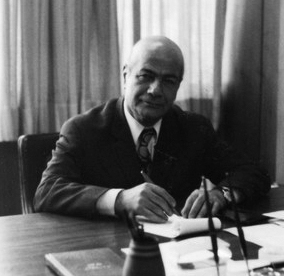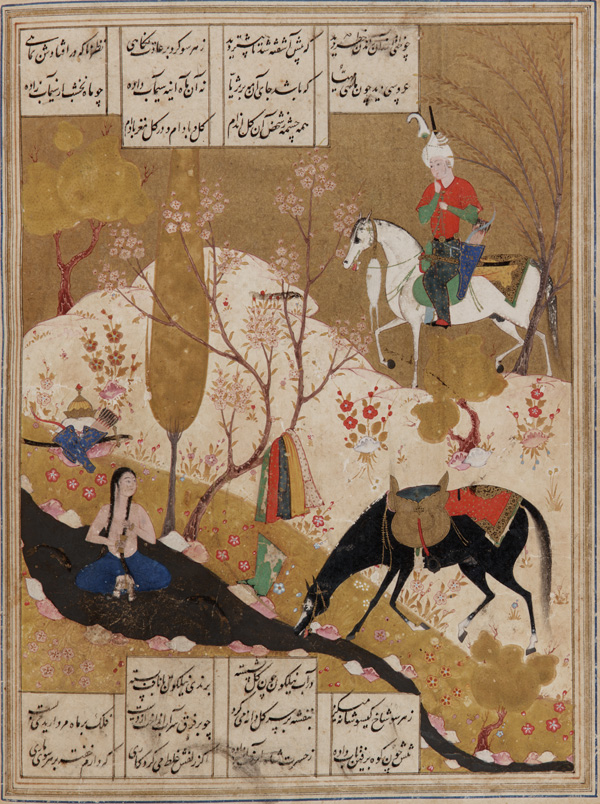|
Iranshenasi
''Iran Shenasi'' also spelled as ''"Iranshinasi"'' () is an academic journal of Iranian studies. The founding editor-in-chief is Jalal Matini. The journal is published in Persian (with English abstracts) and covers Iranian history, Persian culture, and Persian literature. The majority of research libraries in the world that have a Middle Eastern or Iranian studies program are subscribers and it is considered one of the most authoritative journals on the culture of Iran and Persian literature. ''Iranshenasi'' has sometimes dedicated an entire issue to the remembrance of scholars and artists. Special issues on Parviz Natel-Khanlari, Zabihollah Safa, Ferdowsi, Nizami Ganjavi, Mehrdad Bahar, and Richard N. Frye Richard Nelson Frye (January 10, 1920 – March 27, 2014) was an American scholar of Iranian and Central Asian studies, and Aga Khan Professor Emeritus of Iranian Studies at Harvard University. His professional areas of interest were Irania ... are examples of these i ... [...More Info...] [...Related Items...] OR: [Wikipedia] [Google] [Baidu] |
Zabihollah Safa
Zabihollah Safa (; May 7, 1911 in Shahmirzad, Iran – April 29, 1999 in Lübeck, Germany) was a scholar and professor emeritus of Iranian studies at the University of Tehran. His main contribution to the field of Iranian studies is seen in his seminal and comprehensive works on the history of Persian literature. He was also a regular contributor to the ''Encyclopaedia Iranica''. Education and professional life Awards Z. Safa has won several awards: a.o. Decoration (medal) for Science (1. class) (Cultural Ministry (1936), ''Nešān-e Sepās'', 1. class (1947), ''Palmes Académiques'' Rang Commandeur (French Government) (1970), ''Neshān-e Tāj'' (1977), ''Ehsan Yarshater'' prize (1997) Bibliography Persian literature * ''Hamâse-sarâyi dar Irân'', Tehran 1945 (2000) * ''Târikh-e tahawwol-e Nazm-o- Nasr-e Pârsi'', 1952 (1331), 8. ed. 1974 (1353), * ''Ayên-e sokhan. Dar ma’âni wa bayân'', Tehran 1952 (1959), 18. ed. 1994 * ''Târikh-e adabiyyât dar Irân'' ... [...More Info...] [...Related Items...] OR: [Wikipedia] [Google] [Baidu] |
Iranian Studies
Iranian studies ( '), also referred to as Iranology and Iranistics, is an interdisciplinary field dealing with the research and study of the civilization, history, literature, art and culture of Iranian peoples. It is a part of the wider field of Oriental studies. Iranian studies is broader than and distinct from Persian studies, which is the study of the modern Persian language and literature specifically. The discipline of Iranian Studies focuses on broad trends in culture, history, language and other aspects of not only Persians, but also a variety of other contemporary and historical Iranian peoples, such as Kurds, Lurs, Gilakis, Talysh, Tajiks, Pashtuns, Ossetians, Baluchis, Scythians, Sarmatians, Alans, Parthians, Sogdians, Bactrians, Khwarazmians, and Mazandaranis. In medieval Iran The medieval Persian poet Ferdowsi, author of the Iranian national epic the ', can be considered the founder of Iranian studies in the sense that in his work he made a deliberate ... [...More Info...] [...Related Items...] OR: [Wikipedia] [Google] [Baidu] |
Jalal Matini
Jalal Matini (; 1928 – 19 January 2025) was an Iranian scholar of Persian literature, particularly renowned for his expertise on the epic Shahnameh by Ferdowsi, and contemporary Iranian studies. He is also known for producing the critical edition of the Kush Nama. Prior to the 1979 Iranian revolution, Matini was a professor and president of the Ferdowsi University of Mashhad (Iran). After emigrating to the United States, Matini taught Persian literature at the University of California, Berkeley and at Harvard University, and founded the journals ''Iran-Nameh'', and '' Iran-Shenasi''. He died on 19 January 2025, at the age of 96. Works |
Iranian Studies Journals
Iranian () may refer to: * Something of, from, or related to Iran ** Iranian diaspora, Iranians living outside Iran ** Iranian architecture, architecture of Iran and parts of the rest of West Asia ** Iranian cuisine, cooking traditions and practices Other uses * Iranian peoples, the speakers of the Iranian languages. The term Iranic peoples is also used for this term to distinguish the pan-ethnic term from Iranian, used for the people of Iran * Iranian languages, a branch of the Indo-Iranian languages * Iranian.com, also known as ''The Iranian'' and ''The Iranian Times'' See also * Persian (other) * Iranians (other) * Languages of Iran * Ethnicities in Iran * Demographics of Iran * Indo-Iranian languages * Irani (other) * List of Iranians This is an alphabetic list of notable people from Iran or its historical predecessors. In the news * Ali Khamenei, supreme leader of Iran * Ebrahim Raisi, former president of Iran, former Chief Justice of Iran. ... [...More Info...] [...Related Items...] OR: [Wikipedia] [Google] [Baidu] |
Persian Culture
The culture of Iran () or culture of PersiaYarshater, Ehsa, ''Iranian Studies'', vol. XXII no. 1 (1989) is one of the oldest and among the most influential in the world. Iran (Persia) is widely regarded as one of the cradles of civilization.Kermanshah, A Cradle of Civilization 28 September 2007. Retrieved 4 July 2019 Due to its dominant geopolitical position in the world, it has heavily influenced peoples and cultures situated in Southern and to the ... [...More Info...] [...Related Items...] OR: [Wikipedia] [Google] [Baidu] |
Richard N
Richard is a male given name. It originates, via Old French, from Old Frankish and is a compound of the words descending from Proto-Germanic language">Proto-Germanic ''*rīk-'' 'ruler, leader, king' and ''*hardu-'' 'strong, brave, hardy', and it therefore means 'strong in rule'. Nicknames include " Richie", " Dick", " Dickon", " Dickie", " Rich", " Rick", "Rico (name), Rico", " Ricky", and more. Richard is a common English (the name was introduced into England by the Normans), German and French male name. It's also used in many more languages, particularly Germanic, such as Norwegian, Danish, Swedish, Icelandic, and Dutch, as well as other languages including Irish, Scottish, Welsh and Finnish. Richard is cognate with variants of the name in other European languages, such as the Swedish "Rickard", the Portuguese and Spanish "Ricardo" and the Italian "Riccardo" (see comprehensive variant list below). People named Richard Multiple people with the same name * Richard Ander ... [...More Info...] [...Related Items...] OR: [Wikipedia] [Google] [Baidu] |
Mehrdad Bahar
Mehrdad Bahar (, pronunciation: Mehrdād Bahār) (1929, in Tehran – 13 November 1994, in Tehran) was a prominent Iranist, linguist, mythologist and Persian historian. Early life Mehrdad Bahar was the youngest son of Persian poet Mohammad Taghi Bahar. He graduated from Tehran University with a Ph.D. in Persian literature and ancient Iranian languages. He received an MA degree in ancient and medieval Persian history from the University of London where he studied with Professor Mary Boyce at the School of Oriental and African Studies. He began his career as a linguist with focus on Middle Persian. Later in his career he became interested in Persian mythology. He developed theories on ancient roots in Persian culture. Works His works on Persian mythology are mainly focused on major non-Aryan/Iranian influences, most of all Mesopotamian mythologies. Bahar's most notable work is his translation of the well-known Middle Persian text, '' Bondahesh(n)''. His other prominent work, ' ... [...More Info...] [...Related Items...] OR: [Wikipedia] [Google] [Baidu] |
Nizami Ganjavi
Nizami Ganjavi (; c. 1141 – 1209), Nizami Ganje'i, Nizami, or Nezāmi, whose formal name was Jamal ad-Dīn Abū Muḥammad Ilyās ibn-Yūsuf ibn-Zakkī,Mo'in, Muhammad(2006), "Tahlil-i Haft Paykar-i Nezami", Tehran.: p. 2: Some commentators have mentioned his name as “Ilyas the son of Yusuf the son of Zakki the son of Mua’yyad” while others have mentioned that Mu’ayyad is a title for Zakki. Mohammad Moin, rejects the first interpretation claiming that if it were to mean 'Zakki son of Muayyad' it should have been read as 'Zakki i Muayyad' where izafe (-i-) shows the son-parent relationship but here it is 'Zakki Muayyad' and Zakki ends in silence/stop and there is no izafe (-i-). Some may argue that izafe is dropped due to meter constraints but dropping parenthood izafe is very strange and rare. So it is possible that Muayyad was a sobriquet for Zaki or part of his name (like Muayyad al-Din Zaki). This is supported by the fact that later biographers also state Yusuf was ... [...More Info...] [...Related Items...] OR: [Wikipedia] [Google] [Baidu] |
Ferdowsi
Abu'l-Qâsem Ferdowsi Tusi (also Firdawsi, ; 940 – 1019/1025) was a Persians, Persian poet and the author of ''Shahnameh'' ("Book of Kings"), which is one of the world's longest epic poetry, epic poems created by a single poet, and the greatest epic of Persian-speaking people, Persian-speaking countries. Ferdowsi is celebrated as one of the most influential figures of Persian literature and one of the greatest in the history of literature. Name Except for his ''kunya (Arabic), kunya'' ( – , meaning 'father of Qasem') and his Takhallus, pen name ( – ''Ferdowsī'', meaning 'Paradise, paradisic'), nothing is known with any certainty about his full name. According to Djalal Khaleghi-Motlagh, the information given by the 13th-century author Bundari about Ferdowsi's name should be taken as the most reliable. Bundari calls the poet al-Amir al-Hakim Abu'l-Qasem Mansur ibn al-Hasan al-Ferdowsi al-Tusi. From an early period on, he has been referred to by different additional na ... [...More Info...] [...Related Items...] OR: [Wikipedia] [Google] [Baidu] |
Iran
Iran, officially the Islamic Republic of Iran (IRI) and also known as Persia, is a country in West Asia. It borders Iraq to the west, Turkey, Azerbaijan, and Armenia to the northwest, the Caspian Sea to the north, Turkmenistan to the northeast, Afghanistan to the east, Pakistan to the southeast, and the Gulf of Oman and the Persian Gulf to the south. With a Ethnicities in Iran, multi-ethnic population of over 92 million in an area of , Iran ranks 17th globally in both List of countries and dependencies by area, geographic size and List of countries and dependencies by population, population. It is the List of Asian countries by area, sixth-largest country entirely in Asia and one of the world's List of mountains in Iran, most mountainous countries. Officially an Islamic republic, Iran is divided into Regions of Iran, five regions with Provinces of Iran, 31 provinces. Tehran is the nation's Capital city, capital, List of cities in Iran by province, largest city and financial ... [...More Info...] [...Related Items...] OR: [Wikipedia] [Google] [Baidu] |
Parviz Natel-Khanlari
Parviz Natel Khanlari (; March 20, 1914 – August 23, 1990) was an Iranian literary scholar, linguist, author, researcher, politician, and professor at Tehran University. Biography Parviz Natel Khanlari graduated from Tehran University in 1943 with a doctorate degree in Persian literature, and began his academic career in the faculty of arts and letters. He also studied linguistics at Paris University for two years. From then on, Khanlari founded a new course named history of Persian language in Tehran University. Apart from his academic career which continued until the 1979 revolution, Khanlari held numerous administrative positions in the Iran in the 1960s through the late 1970s. Parviz Natel Khanlari was the founder and editor of ''Sokhan magazine'', a leading literary journal with wide circulation among Iraninan intellectuals and literary scholars from the early 1940s to 1978. See also * Persian literature * Iranian Studies References Bibliography * Furth ... [...More Info...] [...Related Items...] OR: [Wikipedia] [Google] [Baidu] |
Persian Literature
Persian literature comprises oral compositions and written texts in the Persian language and is one of the world's oldest literatures. It spans over two-and-a-half millennia. Its sources have been within Greater Iran including present-day Iran, Iraq, Afghanistan, Pakistan, the Caucasus, and Turkey, regions of Central Asia (such as Tajikistan), South Asia and the Balkans where the Persian language has historically been either the native or official language. For example, Rumi, one of the best-loved Persian poets, born in Balkh (in modern-day Afghanistan) or Wakhsh (in modern-day Tajikistan), wrote in Persian and lived in Konya (in modern-day Turkey), at that time the capital of the Seljuks in Anatolia. The Ghaznavids conquered large territories in Central and South Asia and adopted Persian as their court language. There is thus Persian literature from Iran, Mesopotamia, Azerbaijan, the wider Caucasus, Turkey, Pakistan, Bangladesh, India, Tajikistan and other parts of Cent ... [...More Info...] [...Related Items...] OR: [Wikipedia] [Google] [Baidu] |




